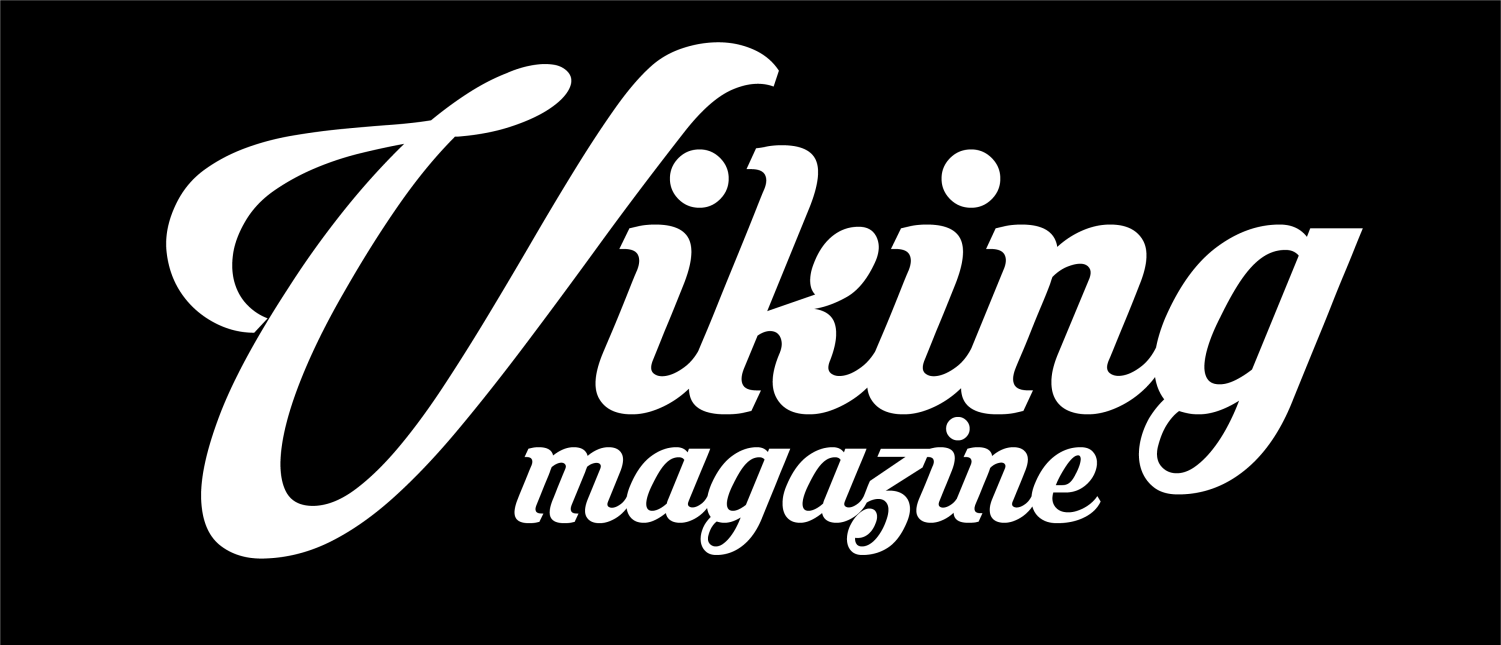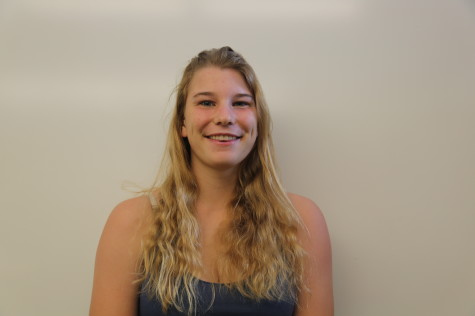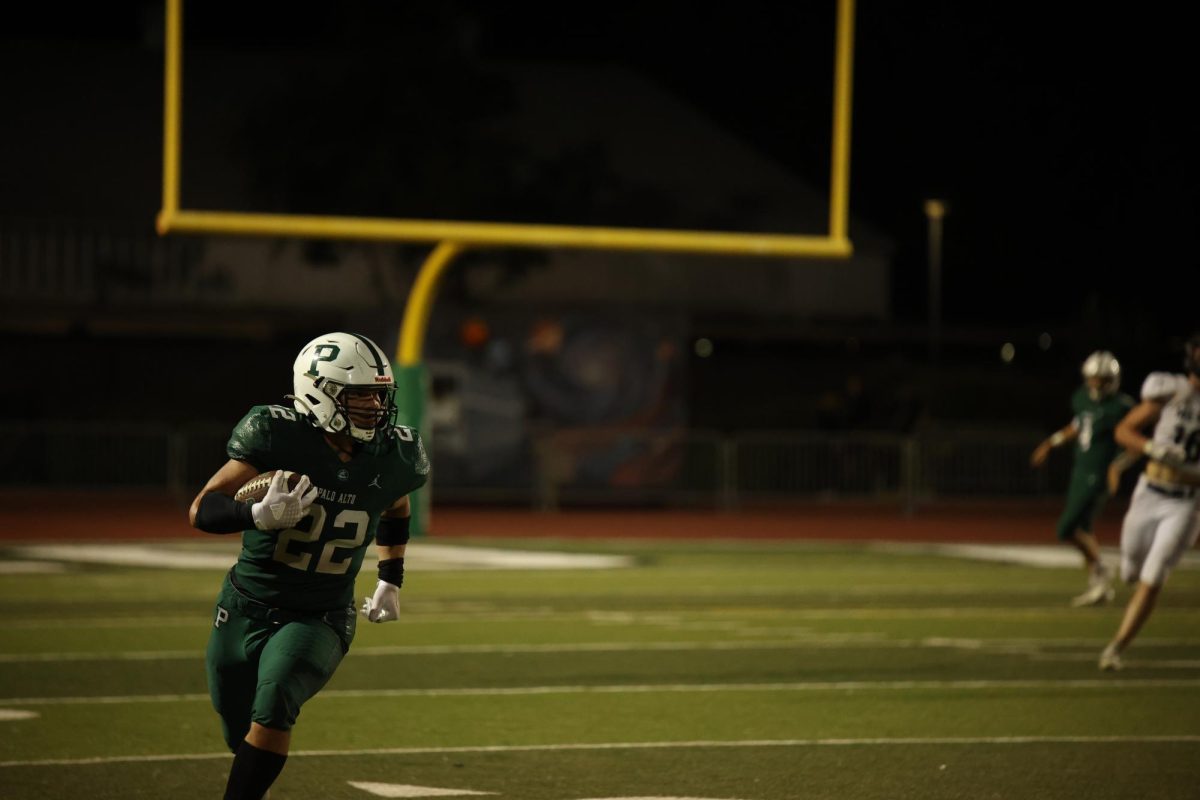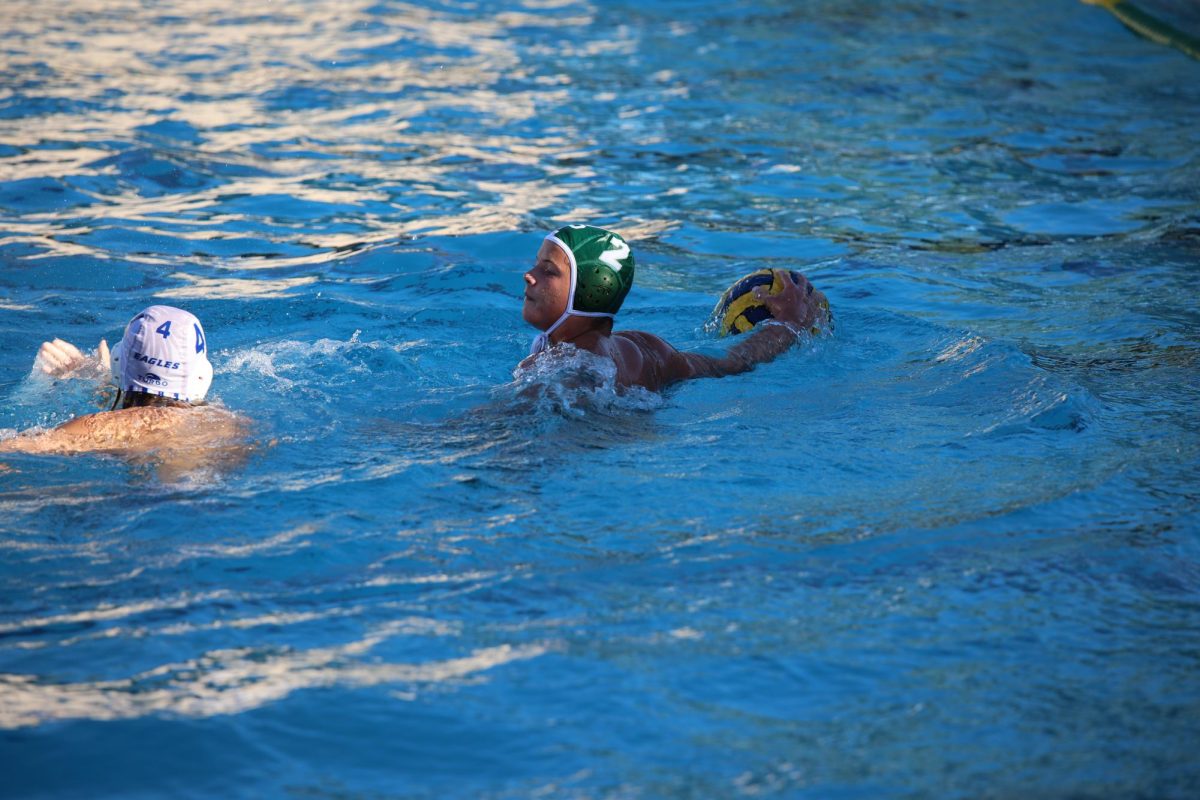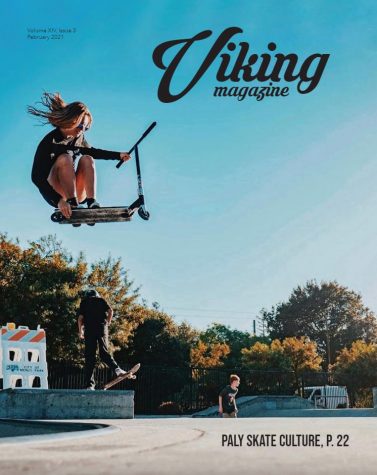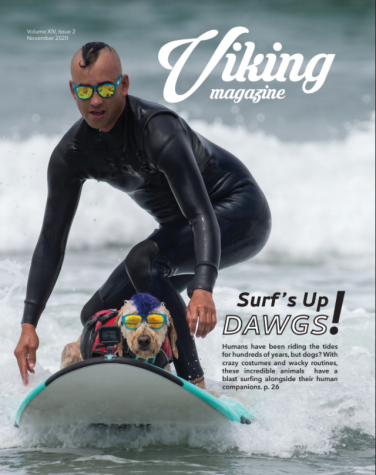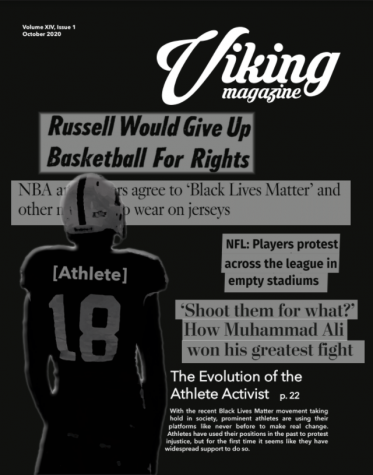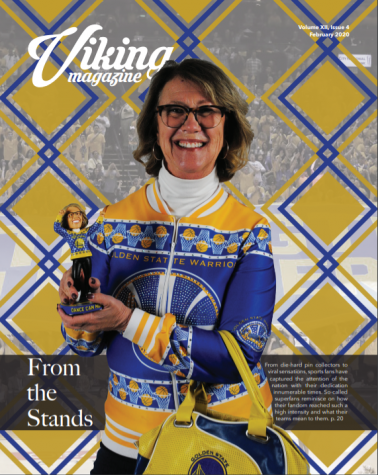Ultimate Peace
Viking explores the motivations and effects of Ultimate Peace; an organization using ultimate frisbee to encourage peace among Palestine and Israeli youth living in the Middle East.
November 2, 2016
With gunshots flying and mysterious planes circling overhead, people living in the conflicted affected areas of the Middle East must be constantly aware of the threats that surround them. But, in the midst of the surrounding trauma, an outlet is offered to children and teens of the clashing nations. This outlet is Ultimate Peace (UP), an organization the uses ultimate frisbee (commonly known as ultimate) to provide a “positive, educational, multicultural experience that is healthy, enriching, inspiring, and fun for youth” in the words of the organization. Because it is based in an area embroiled in so much turmoil, Ultimate Peace uses the values that playing sports instills, to change the pre-existing notions of people from specific areas that are held by the kids in their program.
Viking was able to interview different members of the Ultimate Peace organization, ranging from administration faculty, to coaches and players to better understand how UP works to create an environment available to
MEREDITH TOSTA
Meredith Tosta has been an active participant in Ultimate Peace since 2013, and has volunteered as both a coach and, more recently, the Director of Programming, in charge of making the camp run smoothly. She first heard of Ultimate Peace when she met with David Barkan, one of the founders of Ultimate Peace, while working with UP (then called the Ultimate Players Association).
“When I heard that Barkan was trying to use ultimate [frisbee] as a vehicle for bringing peace to the Middle East, it was a no-brainer to get involved,” Tosta said. “I am often asked if I have roots in the region, as people seem to be looking for an answer to the question of why I would travel halfway around the world, and the truth is I don’t. But I do believe that everyone deserves the chance to live in peace and I have the means and the time to help.”
In fact, the Board of Directors for Ultimate Peace is comprised of mostly out-of-region volunteers, some residing in the Bay Area ,others on the East Coast, and even a few in places around the world. However, their primary objective is the same: to create an environment where kids from different backgrounds can be provided with a safe escape from the treachery of war and play ultimate frisbee.
“Ultimate Peace builds bridges of friendship, trust, and leadership between youth who live in communities divided by conflict, using the values-based sport of Ultimate as its tool,” Tosta said. “We focus on the core principles of mutual respect, friendship, non-violence, integrity and of course, fun.”
Ultimate frisbee differs from most organized sports in that instead of requiring outside referees, rules are enforced through self officiating. Fouls and rule violations are called by players, and it is up to members of each team to resolve conflicts that may be encountered on the field.
This need for level-headed problem solving directly correlates to bettering relationships between players. Respect for each player is the only way the game can continue, so it is key to encourage the kids to forgo their preconceived notions about the other nations, and get to know their teammates on a deeper, more personal level.
“There are not many opportunities in life to practice both conflict resolution and speaking up for yourself, so when we have a sport like this and we take it into a region of conflict, it’s truly remarkable how you see kids grow and adapt,” Tosta said.
In addition, being around kids from conflict-affected areas gives the Ultimate Peace staff a better understanding of the conflict they’re surrounded by, and allows for them to better handle tense situations with the players. Although the staff can understand the more political aspects of the major disagreement, they still struggle to find roots behind the emotional battles that so many people in war-torn areas engage in. Once the kids in the program learn that everyone just wants to throw the frisbee in an accepting environment, they seem to work together incredibly well.
“What I love best about Ultimate Peace,” Tosta said, “is that we don’t focus on the sticking points of the conflict. We provide a safe place for kids to be kids, and the magic that comes from that is what starts to break down barriers of ingrained prejudice and build mutual respect.”
Teamwork and communication is something that seems to bypass a possible language barrier. The nature of team sports at a young age or recreational level is to encourage the development of life skills that are not only important to the creation of a successful team, but are also vital to living a successful life. As a part of Ultimate Peace, the players learn how to communicate their thoughts and disagreements in healthy ways, with people of different nationalities and backgrounds. Later in life, their ability to connect effectively with people of varying ethnic groups or ideas will serve them well, and could ultimately lead to them spearheading positive change in the region.
“Even though it seems impossible at the outset, there is without fail a magical point where communication shifts to a common language, sometimes spoken, sometimes not. Everything starts to flow, smiles are contagious, and you look around and realize that here is a group of kids who would literally never interact, if not for this program…and they are hugging, high-fiving and bounding as a team,” Tosta said.
CALEB SEAMON
Caleb Seamon, a 17-year old from Massachusetts, was exposed to ultimate frisbee at a young age, as his older brothers both played and coached. Seamon has continued his love of ultimate to this day, competing for his high school’s varsity ultimate team and has played at the Youth Club Championships with his club team, Boston BUDA. Growing up in a house where ultimate is so prevalent, it was inevitable that Seamon would hear about Ultimate Peace. Seamon originally learned about Ultimate Peace from his eldest brother, who has now been working with Ultimate Peace for the past five years. After hearing about the amazing memories his brother was making in the Middle East, Seamon knew that he had to experience it as well.
Seamon stepped onto the field as a Leader in Training (LIT), very similar to a Coach in Training. As an LIT, his main goal was to assist head coaches, maintain positive energy, and occasionally run a drill or scrimmage. He was one of the thirteen American LIT’s working at camp this past summer, a minority compared to the roughly 45 Middle East LIT’s. Before arriving to camp, Seamon had only met one of the other LIT’s briefly before arriving in the Middle East. Although the summer camp was only eight days long, Seamon admits that fast friendships bloomed.
“We [the American LITs] ranged from the Northeast to the midwest and to the west — so much distance separated us,” Seamon said. “An outsider would not he able to tell this now, however, because the 8-ish days we spent constantly together brought us so close. The way in which UP brings passionate people together for a week catalyses special friendships.”
Even to this day Seamon admits that the LIT’s remain close in contact, relying on social media and Skype to keep in touch. According to Seamon, the group chat between the American LIT’s is active daily, and they try to plan Skype calls with the Middle Eastern LITs as often as they can. One of the biggest changes is that now the majority of Seamon’s Facebook feed is in Hebrew and Arabic.
However, the connections made between LIT’s are not the only connections made in Ultimate Peace: by the end of camp, many campers find friends from backgrounds they never thought they would find similarities with. The three distinct backgrounds at camp – Arab-Israelis, Israeli Jews, and Palestinians – normally wouldn’t be found intermingling due to the separation in their communities. However, at Ultimate Peace they have a chance to come together and bond over ultimate.
“The main thing that I think I have learned from my experience as an LIT was that at the end of the day everyone is a person. While I did not think otherwise before camp, the first-hand experience of witnessing the connections made between campers from disputing backgrounds was inspiring,” Seamon said. “From this I have developed a great optimism, especially regarding conflict resolution.”
When we asked Seamon to recall his favorite memory from the eight days he spent at camp, he admitted it was difficult, but decided on “Night Activity”. Night Activity is a night where all the coaches and campers are on the field under the lights, playing different ultimate-related games and dancing to the music that blasts from speakers. During Night Activity, Seamon was asked to look for the “lonely campers” and invite them to play games instead of sitting on the sideline alone.
“There was one night where there was a boy who was looking sad and was all alone sitting off by himself. I walked over to him and after much discussion I finally convinced him to throw with me,” Seamon said. “As we were throwing I tried to bring him out to play some ultimate or to dance, but he repeatedly refused.”
After failing in bringing the boy to a station, he decided to bring the station to the boy. Seamon grabbed one of the nearby games and brought it to where the boy had been sitting alone.
“This attracted so many other campers to come on over and play [the game] with the boy that I was no longer needed,” Seamon said. “The kind of feeling I got when I looked over as I left to see him smiling and laughing with other campers is a feeling I have not had since. Pure and genuine happiness, because that is what Ultimate Peace is about.”
STEPHANIE WONG
Stephanie Wong has been involved with Ultimate Peace for over three years, during which her role in the organization has shifted from Assistant Coach in 2014, to Camp Medic, Head Coach, and Club Leader in 2016. Wong has been playing ultimate frisbee for an estimated 15 years, and is was through her college team that she was introduced to the Ultimate Peace Program.
“I went to College Nationals in 2009 and met Linda Sidorsky at the [Ultimate Peace] tent. She gave me an Ultimate Peace pendant and told me about the program and I was hooked. I knew I couldn’t go then, but when I could afford both time and money, I’d go” Wong said.
Working in an area so heavily affected by conflict allows for Wong to gain a new perspective on the fighting that surrounds her. As an adult from the United States, working with kids from all different backgrounds, with all different types of experiences, Wong is able to gather new information and history about the conflict in the Middle East day after day. That being said, understanding the history of the conflict does not make it easier for her to grasp why people are still fighting.
“I didn’t understand [the conflict] conceptually before I went but now that I ‘understand’ why it’s happening I don’t understand why it’s happening. The kids that we’ve worked with, their families, and total strangers that I’ve met ALL want peace” Wong said.
Learning to navigate the differences between working with kids in America and kids in the Middle East seems as though it would require a steep learning curve, but Wong realized that running around and playing sports is something of a universal love, no matter your background.
“I work with youth in the States and in my years have learned that ‘a kid is a kid is a kid’ – they just want to have fun and experience things in life. With no talk of politics, religion or even school, kids get to just play and meet new friends” Wong said.
This summer was the first year that Ultimate Peace was given the opportunity to travel to areas outside of their usual camp location. This enriching experience allowed for campers to gain a deeper understanding of the lives that their peers lead, and gave the leaders a deeper perspective regarding what it is like to be a kid living in the Middle East.
“We were invited to various communities of our LITs (Leaders in Training) and it was a whole different experience being outside of our Camp bubble. We held practice for the local kids and standing on top of the mountain on their practice fields looking out over the valley towards Nazareth was a very small and humbling feeling” Wong said.
Ultimate Peace’s influence on kids throughout the areas they are able to travel to is something that very few organizations have been able to achieve, and the way that they aim to achieve peace is done in one of the most seemingly simple ways, but it would fail without the dedication of people like Wong.
Wong’s leadership over the course of her time with the organization has given her the ability to help shape its mission and program, and has allowed for her to be touched by many of the inspiring stories held by the kids involved in Ultimate Peace. In addition, her position has given her a glimpse into an area that very few Americans are able to experience, and has allotted to her the privilege of influencing the lives of possible future peacemakers in the region.
Ultimate Peace affects the lives of many, and uses ultimate frisbee to create bonds between people of warring nations. Each individual who takes the time to contribute to the betterment of UP, whether they are coaches or players, becomes deeply connected to the organization and the area it operates in, and connection that never seems to die. Through instilling the values of teamwork, acceptance, and communication in all of the kids in the program, they become more aware, unbiased, and inclusive global citizens. The conflict in the Middle East is not something that can be resolved in a day, but Ultimate Peace has been working for years to peace in the Middle East become a reality.Dan Tapuach
